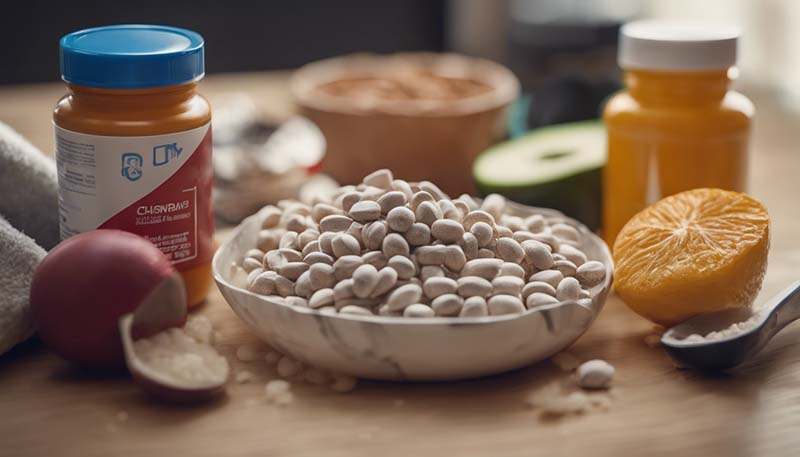Sports Nutrition for Athletes with Diabetes
2024-06-08
Title: Sports Nutrition for Athletes with Diabetes
Introduction:
- Briefly explain the prevalence of diabetes in athletes and the importance of proper sports nutrition.
- Highlight the challenges faced by athletes with diabetes in terms of managing their blood sugar levels during sports and exercise.
Section 1: Understanding Diabetes and Sports Nutrition
- Define diabetes and its two main types (Type 1 and Type 2).
- Explain how diabetes affects the body's ability to utilize glucose for energy.
- Discuss the role of sports nutrition in managing blood sugar levels and optimizing athletic performance.
Section 2: Carbohydrate Intake for Athletes with Diabetes
- Explain the importance of carbohydrate intake for athletes with diabetes.
- Discuss the types of carbohydrates to consume and the recommended amounts.
- Provide examples of carbohydrate-rich foods that are suitable for athletes with diabetes.
Section 3: Protein and Fat Intake for Athletes with Diabetes
- Discuss the role of protein and fat in sports nutrition for athletes with diabetes.
- Explain the recommended intake of protein and fat for athletes with diabetes.
Advertisement
- Provide examples of high-quality protein and healthy fat sources.
Section 4: Pre-Exercise Nutrition for Athletes with Diabetes
- Discuss the importance of pre-exercise nutrition for athletes with diabetes.
- Provide guidelines on timing and the types of foods to consume before exercise.
- Offer tips for adjusting insulin dosage or carbohydrate intake based on the intensity and duration of the exercise.
Section 5: Post-Exercise Nutrition for Athletes with Diabetes
- Explain the role of post-exercise nutrition in blood sugar management and muscle recovery.
- Discuss the recommended timing and types of foods to consume after exercise.
- Offer tips for adjusting insulin dosage or carbohydrate intake based on the intensity and duration of the exercise.
Section 6: Hydration and Electrolyte Balance for Athletes with Diabetes
- Discuss the importance of hydration and electrolyte balance in sports nutrition for athletes with diabetes.
- Provide guidelines on fluid and electrolyte intake during exercise.
- Offer tips for monitoring and managing dehydration and electrolyte imbalances.
Section 7: Meal Planning and Portion Control for Athletes with Diabetes
- Discuss the importance of meal planning and portion control in managing blood sugar levels.
- Provide guidelines on creating a balanced meal plan that meets the nutritional needs of athletes with diabetes.
- Offer tips for adjusting meal plans based on exercise schedules and intensity.
Section 8: Monitoring and Adjusting Nutrition Strategies for Athletes with Diabetes
- Discuss the importance of monitoring blood sugar levels and adjusting nutrition strategies accordingly.
- Provide guidelines on using blood glucose meters, continuous glucose monitors, and insulin pumps.
- Offer tips for adjusting nutrition strategies based on individual responses to exercise and dietary changes.
Conclusion:
- Summarize the key points discussed in the article.
- Emphasize the importance of proper sports nutrition in managing blood sugar levels and optimizing athletic performance for athletes with diabetes.
- Encourage athletes with diabetes to consult with a healthcare professional or registered dietitian for personalized nutrition advice.

Remember to provide proper citations and references for any scientific data or research studies mentioned in the article. Good luck with your writing!
Comments